#sheila tousey
Explore tagged Tumblr posts
Text
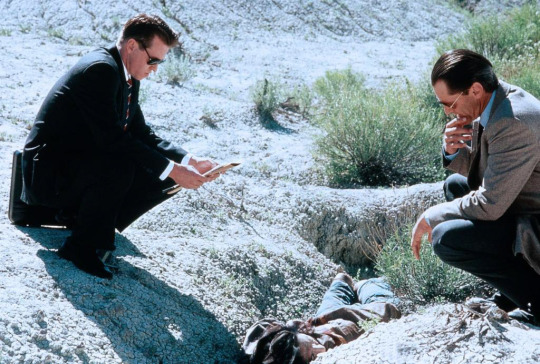
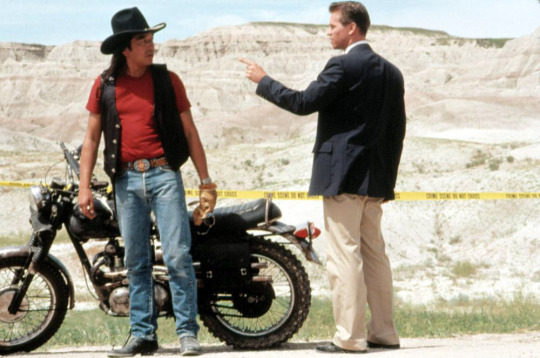
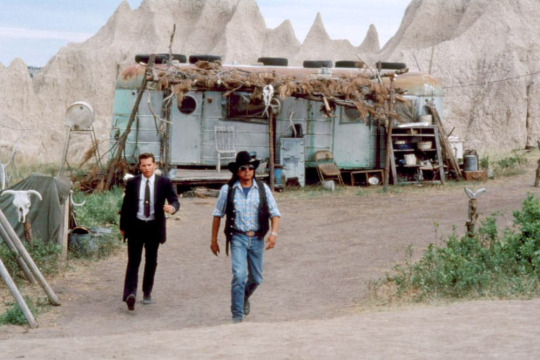
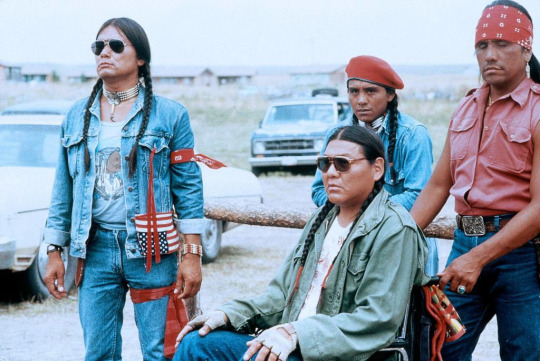
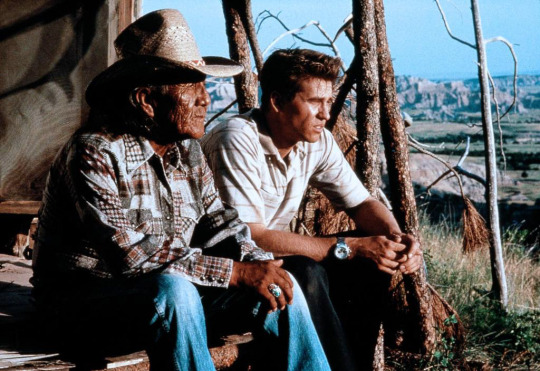
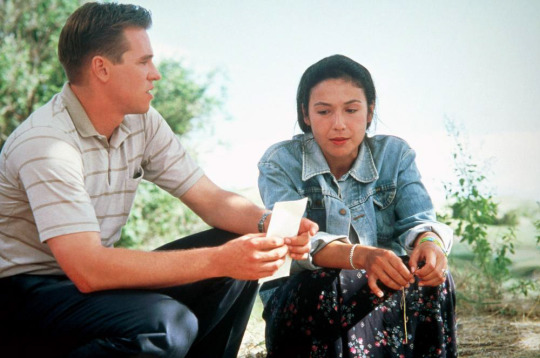
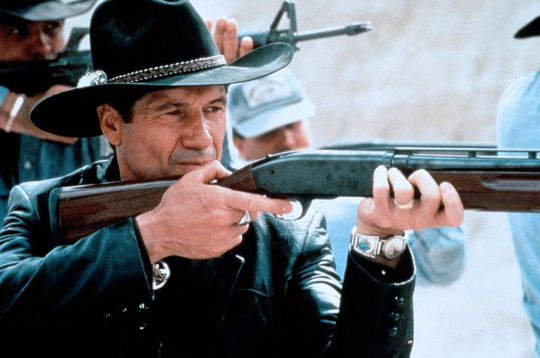
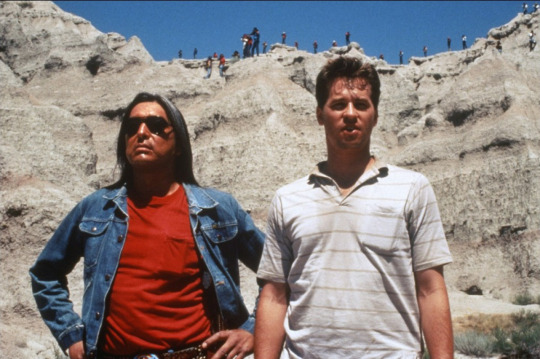
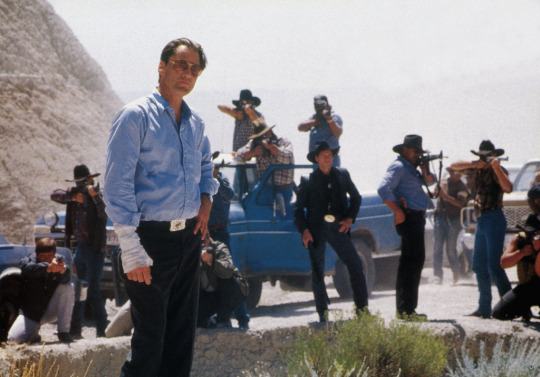
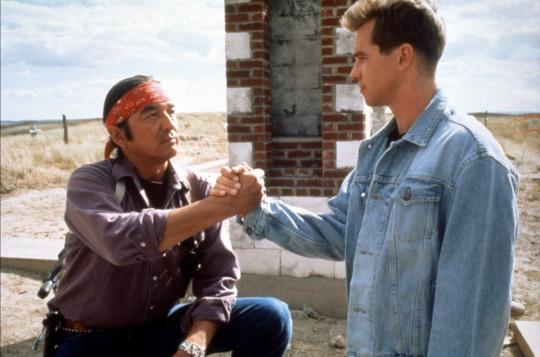
t h u n d e r h e a r t, 1992 🎬 dir. michael apted
#film#native#thunderheart#thunderheart 1992#michael apted#val kilmer#sam shepard#graham greene#fred ward#Sheila Tousey#Julius Drum#FBI Agent Ray Levoi#FBI Agent Frank Coutelle#Walter Crow Horse#Jack Milton#Maggie Eagle Bear#Richard Yellow Hawk
79 notes
·
View notes
Text
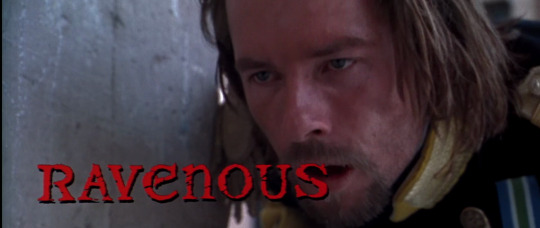
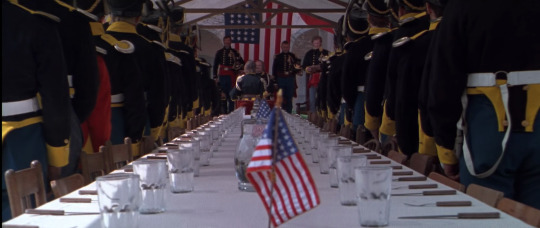

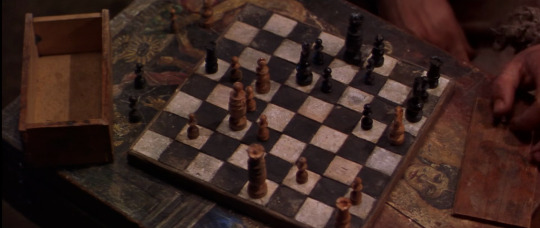
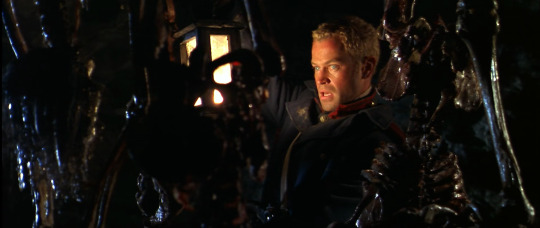

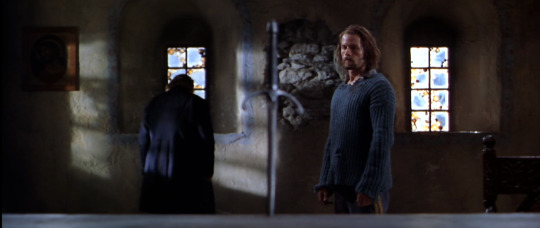
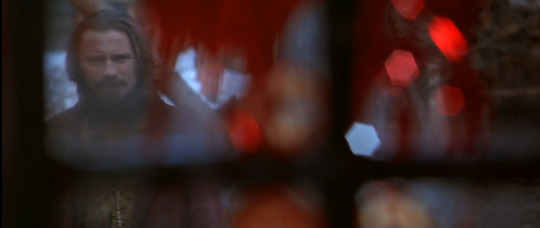

RAVENOUS (1999)
Director: Antonia Bird Cinematography: Anthony B. Richmond
#ravenous#mortos de fome#guy pearce#robert carlyle#david arquette#jeremy davies#jeffrey jones#neal mcdonough#sheila tousey#stephen spinella#antonia bird#90s#90s movies#cannibalism#cannibal movies#horror#horror movies#period horror#cinematography#movie screencaps#movie screenshots#movie frames#film screencaps#film screenshots#film frames#screenshots#screencaps#screengrabs
108 notes
·
View notes
Text
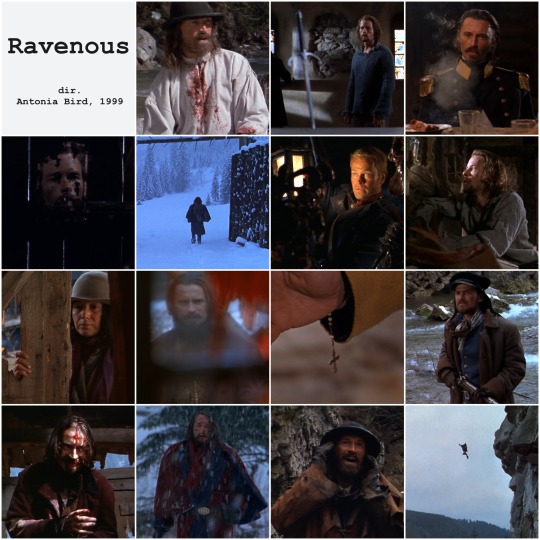
Ravenous
directed by Antonia Bird, 1999
#Ravenous#Antonia Bird#movie mosaics#Robert Carlyle#Guy Pearce#Neal McDonough#Sheila Tousey#Jeremy Davies
50 notes
·
View notes
Text
'Manahatta,' Another View of The Lenape at the Public
'Manahatta' is an intriguing and striking play that is a must-see.
(L to R): Rainbow Dickerson, Sheila Tousey, Jeffrey King, David Kelly and Joe Tapper in the New York premiere of Manahatta (Joan Marcus) In Manahatta, written by Mary Kathryn Nagle and directed by Laurie Woolery, the myth of how Manhattan was purchased from the Lenape, and how the exploitation of Indigenous Peoples continues today, conjoins in a powerful message. Nagle’s play, currently at the…
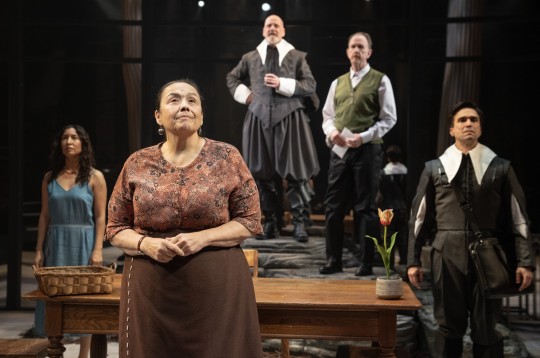
View On WordPress
1 note
·
View note
Text
"INTO THE WEST" (2005) - "Jacob Wheeler and the Awareness of Self"
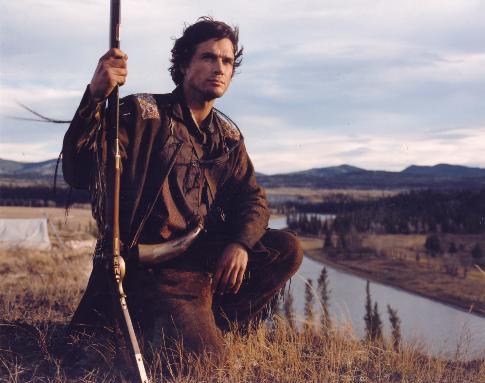
"INTO THE WEST" (2005) – "JACOB WHEELER AND THE AWARENESS OF SELF"
Many people would usually consider the topic of Self Awareness when discussing New Age religions or Eastern mysticism. Characters from a Western television miniseries seems like the last thing anyone would think of when discussing the meaning of Self. Yet, a major character led me to consider this very topic, while re-watching Steven Spielberg’s 2005 miniseries about two families – Lakota and western Virginia - called "INTO THE WEST".
"Self" has been described as the essential self or the core of an individual. A person who has learned to live one’s life with a strong sense of Self is considered as someone who has achieved or come close to a level of self-actualization - namely, achieving personal growth through accepting the true core of oneself. If there is one character in "INTO THE WEST" who seemed to personify self-actualization, it was Thunder Heart Woman (Tonazin Carmelo and later Sheila Tousey), the Lakota woman who had married into the Wheeler family. I am not saying that Thunder Heart Woman was a person with no insecurities, personal demons or anything of the sort. But of all the major characters, she seemed to be more in tune of what and more importantly, who she was.
In the miniseries’ second episode titled, "Manifest Destiny", Thunder Heart Woman had seemed impervious to the Wheeler family's attitude toward her, during her immediate family’s short stay with her in-laws in Virginia. Even when faced with the disapproval of a German minister and fellow wagon immigrant called Preacher Hobbes (Derek de Lint), she remained impervious to his bigotry. At least according to her husband’s narrative. But this essay is not about Thunder Heart Woman. It is about one of the men in her life – the one love in her life, who managed to catch my attention. Namely one Jacob Wheeler (Matthew Settle and later John Terry).
The third of four brothers from a Virginia wheelwright family, Jacob Wheeler seemed very similar to his Lakota wife – the type of person that seemed to know his own mind. The miniseries’ first episode, ”Wheel to the Stars” revealed that Jacob’s Virginia family seemed to view him as a non-conformist . . . or oddball. He, in turn, regarded his hometown of Wheelerton, Virginia; his family and its profession with mild contempt. In short, this young Virginian was a fish out of water in 1825 America and he knew it. This would explain Jacob’s longing to see the world beyond his hometown and the eastern United States. He did not hesitate to express his enthusiasm for the West. After meeting mountain man James Fletcher (Will Patton), he immediately set out to achieve his desire to leave Wheelerton.
Possessing a talent for persuasion, Jacob managed to convince two of his brothers – Nathan (Alan Tudyk) and Jethro (Skeet Ulrich) – into joining his trek to the West. Jethro turned back at the last minute and Nathan ended up accompanying him. After Jacob and Nathan parted ways in St. Louis, the former caught up with Fletcher and famed mountain man, Jedediah Smith (Josh Brolin) and convinced the latter to allow him to accompany Smith’s expedition to California. I could probably list a number of examples of Jacob’s talent for persuasion, along with his exuberant and non-conformist nature. What I had failed to mention was that he possessed a strong and stubborn will to achieve what he desired. A perfect example of this was his determination to return to California after he, Smith and their fellow mountain men had been kicked out of the province by Mexican authorities. Not only did Jacob manage to achieve this goal, he did so at a great price. And yet . . . one of the interesting aspects of the Jacob Wheeler character is that despite possessing a strong will and extroverted nature, he also had certain vulnerable characteristics and insecurities. Especially insecurities. In both ”Wheel to the Stars” and ”Manifest Destiny”, Jacob’s relationships with his Wheelerton family and Thunder Heart Woman revealed just how insecure he could be.
Jacob seemed to have a rather peculiar relationship with his Virginia family. Despite regarding them with contempt for their provincial attitudes, he had also allowed their attitudes to bring out his own insecurities. His grandfather Abraham (Ken Pogue), his father Enoch (Serge Houde) and his three brothers – Nathan, Ezra (Joshua Kalef) and Jethro – either derided or teased him about his lack of interest in the family’s wheelwright business. And all of them viewed Jacob as a daydreamer with no sense of family duty or any common sense. The Wheelers have never hesitated to express their low opinion of Jacob’s desire to experience life beyond Wheelerton. I cannot help but wonder if the Wheelers’ contempt toward Jacob’s non-conformist ways had bred a sense of insecurity within him. Or if this insecurity was one of the reasons behind his desire to escape Wheelerton for the west.
It is possible that I may have stumbled across one result from Jacob’s less-than-ideal relationship with his Virginia family. I do not know if anyone else had noticed, but it seemed to me that whenever any of the other Wheelers teased, ranted or expressed contempt toward Jacob or his views on the West, he rarely bothered to defend himself. Jacob did not defend himself whenever his brothers mocked him at the dinner table.; when Jethro made the "tail tucked between your legs" comment, following Jacob’s return to Wheelerton in "Manifest Destiny"; and when Enoch accused him of luring both Nathan and later, Jacob to the West. Instead of defending himself, Jacob merely remained silent in an effort to ignore the hurtful comments.
However, there have also been moments when he did defend himself. Jacob made a snarky comment about his grandfather Abraham’s penchant for rambling on about his past as Revolutionary War veteran and the family’s business. And the elderly man reacted in such a vitriolic manner that I found myself wondering if Jacob had ended up with a new hole in his backside. When Nathan raged against him for helping an escaped slave named Ben Franklin (Sean Blakemore) in Tennessee, Jacob insisted they had done the right thing considering that Ben had earlier released Nathan after holding him hostage with a knife. And when Nathan lost his temper over Jacob’s refusal to follow him to Texas, the younger brother merely insisted upon continuing his intention to join Jedidiah Smith’s expedition.
One could only wonder why Jacob had rarely bothered to defend himself against his family’s scorn. Did he share Thunder Heart Woman’s talent for imperviously ignoring the scorn and prejudices of others? I rather doubt it. Whereas Thunder Heart Woman had seemed unconcerned by others, Jacob’s face tends to express his pain or embarrassment caused by his family’s attitudes. I suspect that deep down, Jacob longed for not only his family’s respect, but their acceptance of his true self. But unlike many people, he was not willing to change his nature for the Wheelers or anyone else’s acceptance.
Why did Jacob decide to return to Wheelerton with his pregnant wife and daughter after eleven years in the West? In his narration, Jacob claimed that he wanted Thunder Heart Woman and his daughter Margaret Light Shines (Elizabeth Sage, later Irene Bedard) to meet his Virginia family. Perhaps he was telling the truth. Yet, a part of me found that hard to believe. The moment Jacob began to enjoy his Lakota in-laws’ hospitality, he felt certain that his own family extend the same kind of warmth to his wife. And yet . . . he had insisted upon returning to Virginia. Why? Had Jethro hinted the truth in his "tail tuckered between his legs" comment – that Jacob encountered nothing but failure in the West and returned back to Virginia for a livelihood? Or was it something deeper? Perhaps a last chance for Jacob to seek final acceptance from his family? Who knows.
Whatever Jacob had sought in 1836 Virginia, he did not find it. His father Enoch revealed that the family’s wheelwright business had suffered a setback, due to the economic depression that struck the United States in the mid and late 1830s. And the Wheelers seemed no more closer in accepting Jacob for himself or his Western family. His cousin, Naomi Wheeler (Keri Russell) viewed Indians as non-human. His brother Ezra regarded Thunder Heart Woman as a mere "squaw". Naomi’s sister, Rachel (Jessica Capshaw), viewed young Margaret’s hand as a piece of dung. And Enoch seemed to act as if his new daughter-in-law and grandchildren did not exist. No wonder Jacob ended up complaining about the Wheelers’ treatment of his Lakota family.
Eventually, Jacob decided to take his wife and children and return to the West permanently – preferably Californa. It seemed the Wheelers’ continuing disregard toward them – along with news of his idol Jedediah Smith’s death – led to this decision. He almost seemed cold and distant toward his parents and Ezra. But he did not count on Jethro and his three female cousins’ decision to accompany him to California. Apparently, not all of the Wheelers viewed him as an oddball for his preference for the West. Jacob seemed heartened by Jethro’s decision to join him. And although Naomi, Rachel and Leah’s (Emily Holmes) decision to join the trek West took him by surprise, Jacob readily accepted their company. In the following narration, he came to this conclusion:
"I hope that I would prove equal to the responsibility I had undertaken."
I found this comment rather odd. Jethro and the three cousins had been determined to follow Jacob and Thunder Heart Woman on the trek to California, regardless of anything the couple would have done or said. Even Jethro had later pointed this out.
The next three years (1837-1840) must have been the best Jacob had ever experienced with any of the Virginia Wheelers. The three cousins – Naomi, Rachel and Leah – finally began to view Thunder Heart Woman as a member of the family and cherished her and Jacob’s three children (Abraham had been born in Wheelerton in 1836 and Jacob Jr. was born in Missouri sometime in late 1840). Jacob’s close relationship with Jethro seemed like a far cry from the conflicts with Nathan that marred his trip to the west back in the 1820s. One would begin to think that Jacob no longer suffered from any insecurity by this point. And yet . . . they only remained buried inside him, waiting for the right moment to manifest.
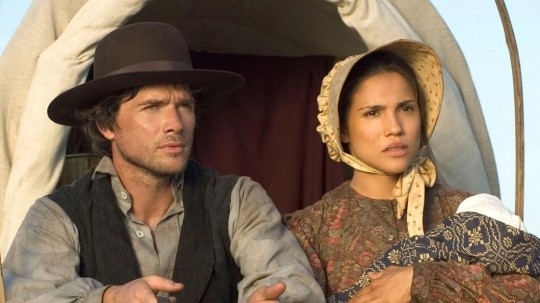
In the end, it took the wagon train journey to California (dubbed "the Wagon Train of Doom" by me) featured in "Manifest Destiny" for Jacob’s insecurities to get the best of him. Upon their arrival in Independence, Missouri in the fall of 1840, the Wheeler family remained there during the winter before joining a California-bound wagon train led by one Stephen Hoxie (Beau Bridges) in the spring of 1841. Surprisingly, only Thunder Heart Woman seemed reluctant to leave Missouri. I suspect she had enough of being constantly on the move for the past several years. But the rest of the Wheelers, especially Jacob, seemed determined to head for California.
Once the Hoxie wagon company began their westward trek, everything seemed to be faring well. The weather seemed beautiful. Everyone seemed to be in good spirits – including the black family from Illinois named Jones that managed to join the wagon train without any opposition. Both Naomi and Rachel attracted the romantic attention of the train’s two scouts – 'Skate' Guthrie and James ‘Jim’ Ebbets (Ryan Robbins and Christopher Heyerdahl). This contentment finally ended when Thunder Heart Woman spotted wolves feeding off the corpse of a buffalo and when the train later crossed what I believe was the Big Blue River. The incident proved to be the first of two disagreements between the couple. Thunder Heart Woman viewed the wolves as a sign that the wagon train would come to a bad end. She insisted that the Wheeler family return to Missouri. Jacob dismissed her worries as superstition on her part. But the expression on his face clearly indicated his doubts on the wisdom of the trip.
Then the first disaster struck. One of the emigrants, a German-born minister named Preacher Hobbes (Derek de Lint), lost control of his wagon during the crossing. Distracted by the Hobbes family’s situation, Jethro nearly lost control of his wagon. Leah fell out of the wagon and drowned in the river’s fast flowing water. Although Hobbes received an angry response for his carelessness from Captain Hoxie, the Wheeler women’s anger seemed to be directed at Jacob for leading them to this western trek. The expression of guilt seemed very palpable on Jacob’s face, as Naomi demanded that he take the family back to Missouri. Leah’s death proved to be just the beginning.
The further west the wagon train traveled, more disasters followed. The emigrants were forced to deal with a severe thunderstorm and a cattle stampede that left the only son of a black emigrant named Absalom Jones (Neville Edwards) dead. Not long after the storm and the stampede, both Naomi and Rachel married two of the wagon train’s scouts, Skate and Jim. But that brief period of happiness failed to last when the wagon train attempted to travel through a pass. While traversing a pass, a wagon broke free, knocked Rachel down and ran over her leg, causing a severe compound fracture. The leg eventually became infected. Hobbes, the closest thing to a doctor available, tried to amputate Rachel's leg; but his efforts turned out to be clumsy and Rachel died before he could finish. Although no family member angrily demanded that return to Missouri, the expression on Jacob’s face obviously conveyed his feelings of guilt.
The final blow to Jacob’s disastrous return to the west occurred when Mrs. Jones died from cholera. Since the Wheelers’ wagons had been traveling with the Jones’ wagon at the back of the train, they had been exposed to the disease. Hoxie and the scouts forced the Wheelers and the remaining members of the Jones family (Mr. Jones and Sally Jones) to remain behind under quarantine while the main body of the wagon train carries on. Only Naomi was able to continue with the train, since she had been with her new husband. Jethro became afflicted with symptoms of cholera but recovered. Both Jacob and Thunder Heart Woman drifted into a serious quarrel, when he suggested that she take their children and attempt to find her Lakota family. Needless to say, Thunder Heart Woman took the suggestion badly and reminded Jacob that he should have listened to her warnings about the journey.
No new outbreaks occurred after Jacob ordered that all drinking water be boiled. The Wheelers and the Jones rushed to catch up with the wagon train, but discovered that it had been attacked by Cheyenne warriors. All of the emigrants had been wiped out, aside from Naomi, who first became a captive and later, a wife of a Cheyenne chief Prairie Fire (Jay Tavare). The Wheelers and the Jones families were also attacked by Cheyenne warriors. They managed to repulse the attack, but Jacob ended up seriously wounded by an arrow in his chest. The surviving emigrants tried to move on with a wounded Jacob, but the juts and bumps of the trail made it impossible for him to endure the pain. Instead, he insisted that Thunder Heart Woman, Jethro, Mr. Jones and the children continue west to California without him, since he would only prevent them from crossing the Sierra Nevada Mountains before winter. They left him behind with great reluctance.
Thanks to a fortuitous encounter with one of his brothers-in-law, Running Fox (Zahn McClarnon), Jacob survived his wound before continuing west. The period he spent east of the Sierra Nevada Mountains allowed him to wallow in loneliness and grief over the separation from his family. But he remained determined to find them. And it took him another four to five years before he finally did. Becoming a member of John Charles Frémont’s California Volunteer Militia during the Mexican-American War allowed Jacob to scour the region for signs or news of his remaining family. Five years passed before he finally came upon the ranch that Jethro and Thunder Heart Woman had settled. Jacob also discovered that in the intervening years, his brother and wife had considered him dead, began a relationship and had a child – a little girl named Cornflower. Devastated by this turn of events, Jacob decided not to reveal himself to his family. At least not openly. Instead, he left the wooden medicine wheel necklace that Thunder Heart Woman had given him when they first met to his youngest child, Jacob High Cloud. Another five years passed before Jacob finally reconciled with his family, due to the efforts of his daughter, Margaret Light Shines.
Ever since I first saw "INTO THE WEST" and especially the above mentioned scene from "Manifest Destiny", I have found myself wondering about Jacob’s actions. I understood why he decided not to intrude upon the family that Jethro and Thunder Heart Woman had formed upon their arrival in California. But why did he leave the medicine wheel necklace to young Jacob? Surely, he knew that his family would be aware that he was alive . . . and knew about their situation? Looking back on his action, it struck me as a very passive-aggressive on his part. He lacked the courage to face Jethro and Thunder Heart Woman. And yet, he seemed determined to thwart the happiness they had created . . . as if he was punishing them for continuing their lives without him. Or perhaps Jacob felt a great deal of envy toward Jethro because the latter turned out to be the one who successfully led the family to California, and not him.
Perhaps Jacob had always a passively-aggressive personality from the beginning. His relationship with his Virginia family struck me as being marked by a great deal of passive-aggressive behavior from the start. Jacob seemed determined to be his own man, whether in his enthusiasm for the West, his decision to leave Wheeler or join Jedediah Smith’s expedition over following his brother Nathan to Texas. And yet . . . he never defended himself in the face of their criticism. Instead, he resorted to resentful silence. Why did he constantly fail to defend himself? Was he merely trying to keep the peace? Or did some small part of him fear that his family may have been right about him? It seemed strange than many fans and critics of "INTO THE WEST" seemed to adore Jacob for his seemingly self-assurance and outgoing personality. At the same time, they derided Jethro for being an insecure loser in their eyes. I got the feeling that they were so busy either scorning Jethro or adulating Jacob that they failed to detect the latter’s personal insecurities and darker traits. And Jacob certainly had them by the bucketful.
Did Jacob ever overcome his insecurities? Perhaps. Perhaps not. I wonder if many are aware of this, but it usually takes an individual to overcome his or her faults during an entire lifetime. A good number of people never succeed in overcoming all of their faults. And since "INTO THE WEST" focused more on his and Thunder Heart Woman’s children in the last three episodes, audiences never discovered if he had overcome all of his faults and insecurities. Jacob certainly seemed more at peace in his old age than he did during his first forty years. Perhaps those years of solitude near the Sierra Mountains foothills helped him finally achieve some inner peace.
#into the west#into the west 2005#into the west tnt#jacob wheeler#matthew settle#thunder heart woman#tonazin carmelo#oregon trail#california trail#jethro wheeler#skeet ulrich#keri russell#jessica capshaw#emily holmes#zahn mcclarnon#beau bridges#derek de lint#serge houde#ken pogue#jay tavare#neville edwards#early america#antebellum#mexican-american war#christopher heyerdahl#ryan robbins#john pyper-ferguson#alan tudyk#self awareness#steven spielberg
12 notes
·
View notes
Photo
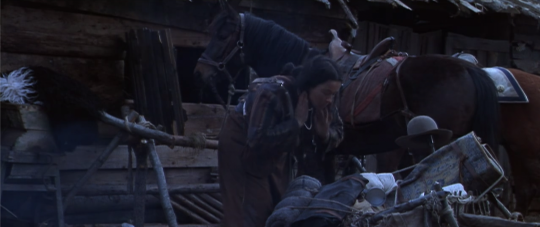
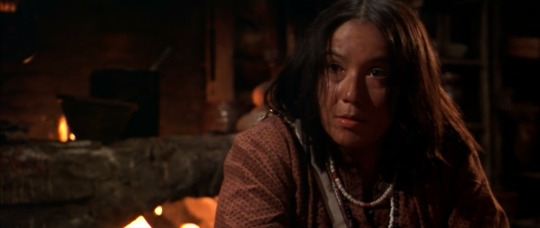
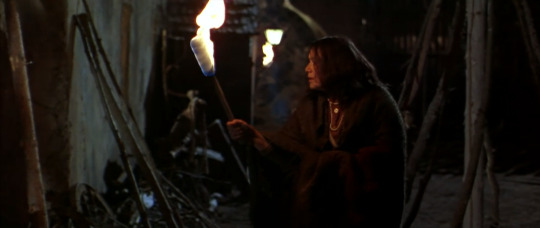
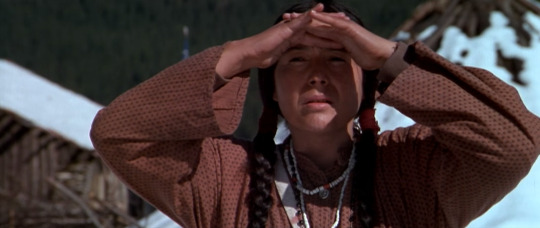
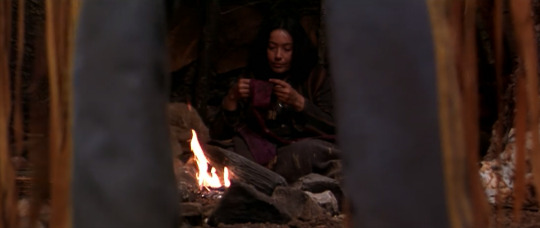
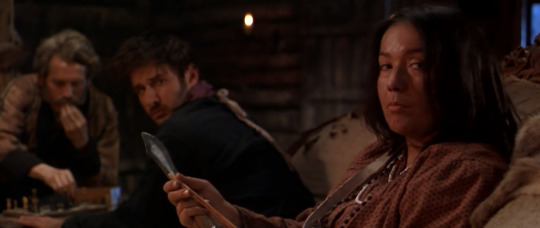
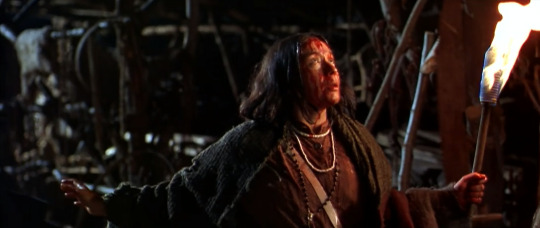
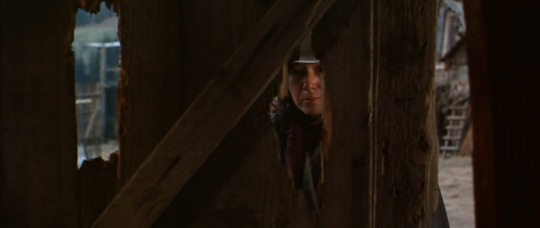
Sheila Tousey as Martha in Ravenous
20 notes
·
View notes
Text
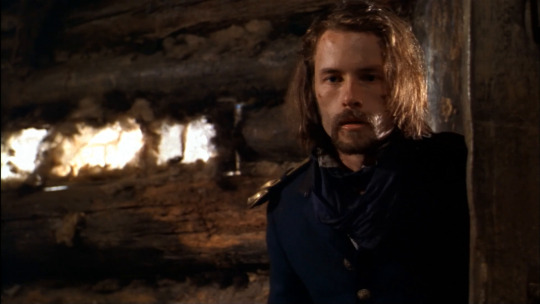
Guy Pearce in Ravenous (Antonia Bird, 1999)
Cast: Guy Pearce, Robert Carlyle, David Arquette, Jeffrey Jones, Jeremy Davies, John Spencer, Stephen Spinella, Neal McDonough, Joseph Runningfox, Sheila Tousey, Bill Brochtrup. Screenplay: Ted Griffin. Cinematography: Anthony B. Richmond. Production design: Bryce Perrin. Film editing: Neil Farrell. Music: Michael Nyman, Damon Albarn.
When the only thing critics can agree on is that your movie has a distinguished music score, you kind of have to admit that the film's a botch. Ravenous is an interesting botch, however: a horror Western about cannibalism, a topic that tantalizes anyone who has ever heard the story of the Donner Party. It has a strong cast, filled with actors who are gifted at playing baddies and weirdos, like Robert Carlyle, Jeremy Davies, and Neal McDonough. The cannibalism in the film is based on the Algonquian legend of the wendigo, an evil spirit that possesses humans and turns them into killers with a desire for human flesh. Yet the movie comes off scattered and sometimes clunky, with the grisly violence arriving without the buildup of suspense. The central character, Capt. Boyd (Guy Pearce), is given a confusing backstory. During the Mexican-American war, he tasted flesh, sort of, when he was wounded, heaped in a pile of corpses, and, unable to move, swallowed the blood of one of the men stacked above him. It gave him a brief surge of strength, during which he struggled out of the pile and performed the act of heroism for which he was honored. But when the commanding officer realizes Boyd is really a coward, he punishes him with a post in an isolated fort located in the Sierra Nevada. The fort is staffed with misfits, and soon falls prey to a mysterious stranger named Colqhoun (Carlyle), who claims to be the survivor of a wagon train that got lost in the mountains and had to resort to cannibalism to survive. Colqhoun is not what he seems, of course, and the rest of the business is bloody. Some of the movie's disjointedness stems from the disagreement between the original director, Milcho Manchevski, and the producers and a subsequent conflict between his replacement, Raja Gosnell, and the cast. Finally, Antonia Bird was hired to complete the film, but even she had problems with the producers and was critical of the cut that was released. Critics generally disliked the movie, but everyone seems to have been pleased with the innovative score by Michael Nyman and Damon Alborn, which relies on instruments from the historic period in which the action takes place and echoes of hymns and patriotic anthems.
3 notes
·
View notes
Photo
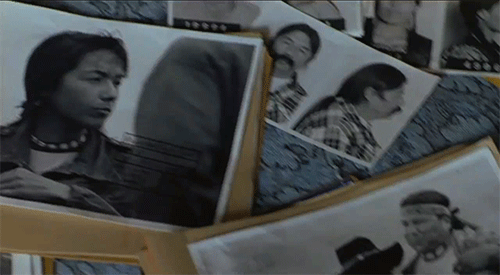
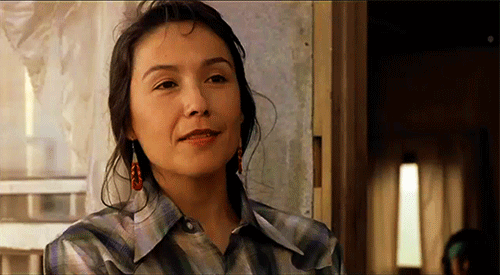
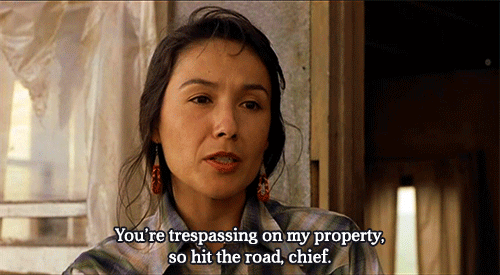
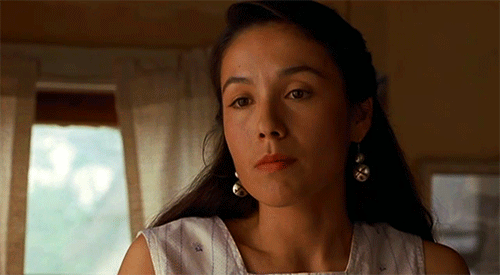
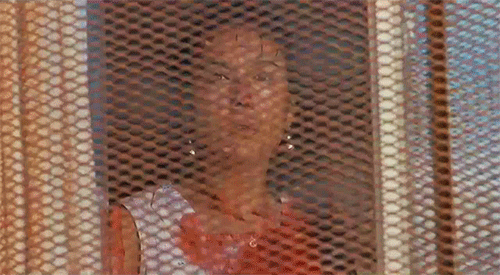
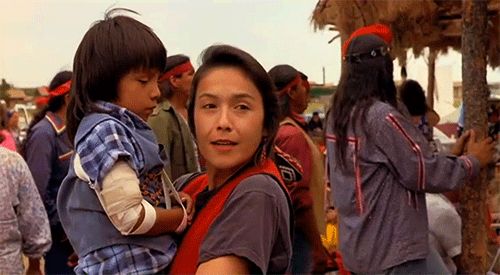
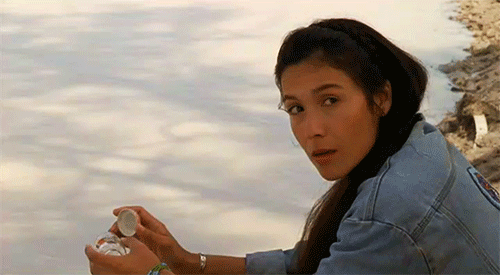
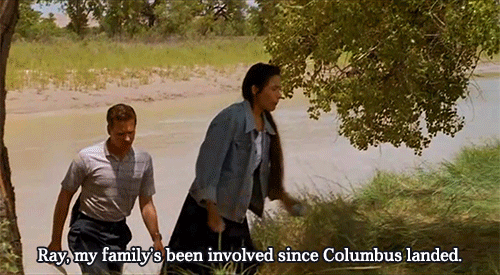
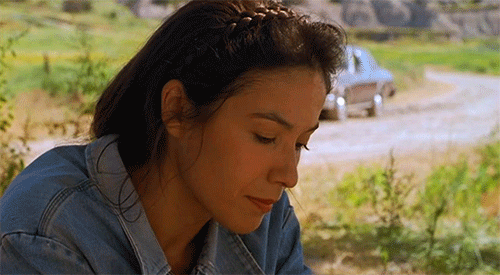
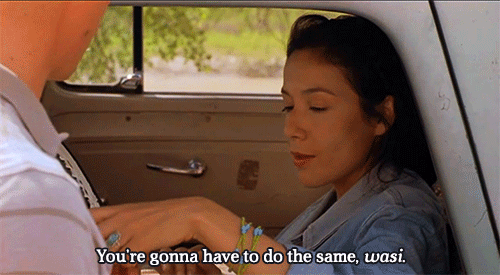
“You do a lot of good work, Maggie. You're very brave."
Sheila Tousey as Maggie Eagle Bear in Thunderheart
58 notes
·
View notes
Photo
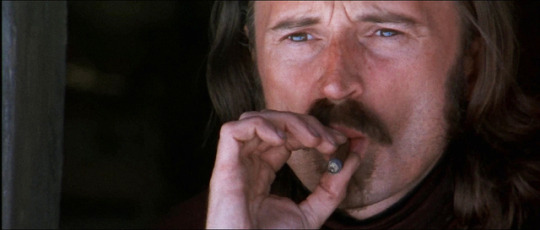
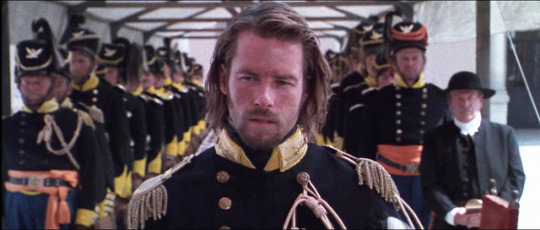
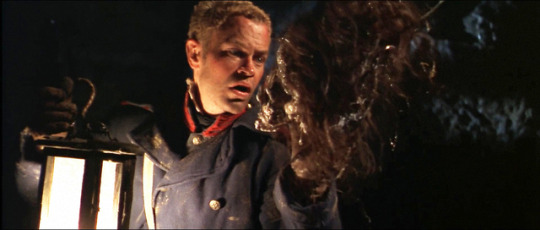
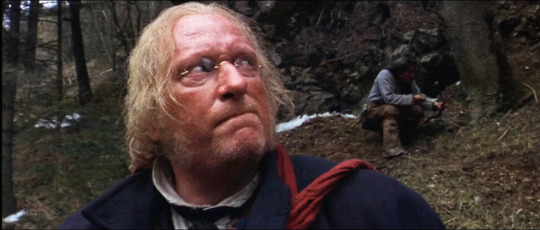
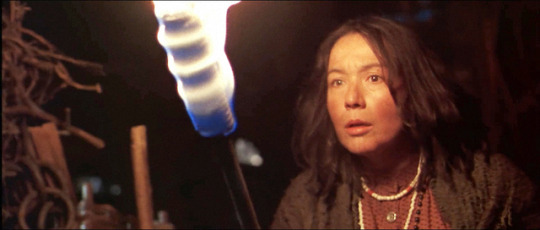
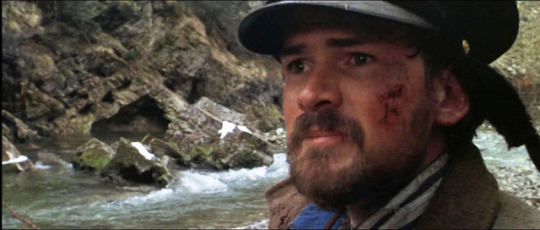
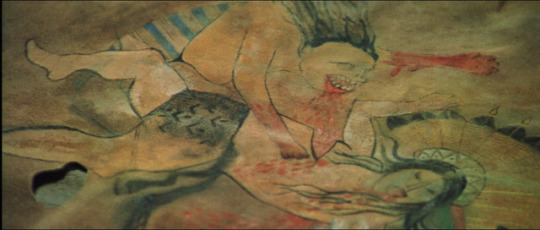
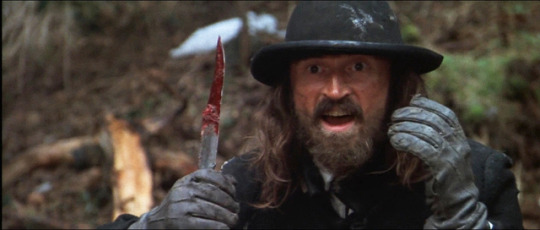
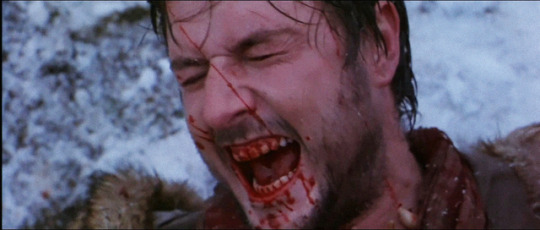
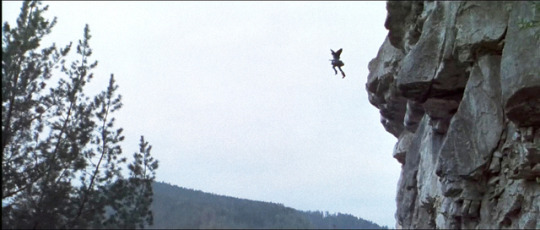
It's not so difficult really, acquiescence. It's easy, actually. You just. give. in.
10 Caps From Ravenous (1999) directed by Antonia Bird
#Ravenous#Ravenous (1999)#Robert Carlyle#Guy Pierce#Antonia Bird#Jeffrey Jones#David Arquette#Jeremy Davies#Neal McDonough#Sheila Tousey#Joseph Running Fox#Ravenous Rewatch#10 Caps#blood#it holds up pretty well it turns out
40 notes
·
View notes
Photo
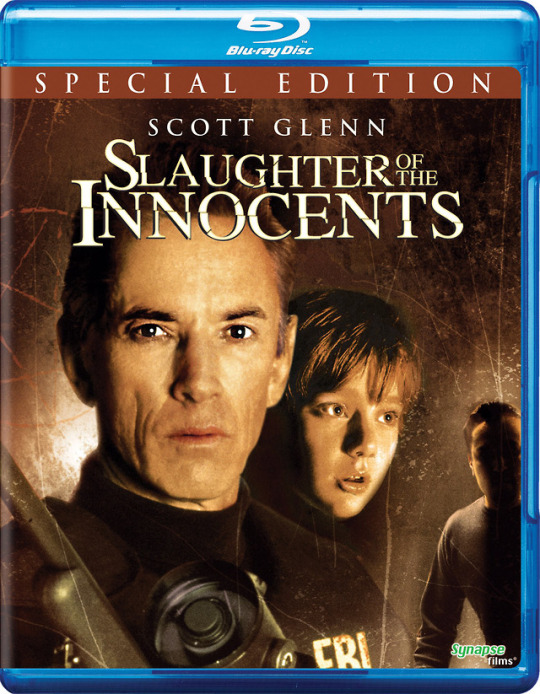
Slaughter of the Innocents will be released on special edition Blu-ray on June 11 via Synapse Films. The 1993 horror-thriller is written and directed by James Glickenhaus (The Exterminator, The Protector).
Scott Glenn, Jesse Cameron-Glickenhaus, Sheila Tousey, Zitto Kazann, and Darlanne Fluegel star, with Kevin Sorbo and Armin Shimerman in supporting roles and a then-unknown Aaron Eckhart in a bit part.
Special features are listed below.
Special features:
Audio commentary with writer-director James Glickenhaus
Interview with make-up effects designer Gabe Bartalos (new)
Interview with director of photography Mark Irwin (new)
Archival interviews with with writer-director James Glickenhaus and actors Scott Glenn and Jesse Cameron-Glickenhaus
Electronic press kit featurette
Deleted scenes
Alternate assault sequence
US & international theatrical trailers
Scott Glenn stars as FBI Agent Stephen Broderick, a man who has attained legendary status within the Bureau for his crime-solving abilities. There is only one other person whose abilities rival his own… his young computer genius son, Jesse (Jesse Cameron-Glickenhaus). Working together, they are an unbeatable team but they may have just met their match in a deranged religious fanatic who preys upon children. Eager to close the case, the police irresponsibly push for the execution of the wrong man, leaving the real serial killer at large. Jesse and his father piece together clues from past murders and recent events, leading to a desperate race against time as Agent Broderick finds his very own son in the hands of the deranged psychopath. Time is running out, and Broderick is the only one who can stop the slaughter of the innocents!
#slaughter of the innocents#scott glenn#kevin sorbo#armin shimerman#aaron eckhart#synapse films#dvd#gift#jesse cameron glickenhaus#sheila tousey#zitto kazann#darlanne fluegel#90s horror#1990s horror#gabe bartalos
7 notes
·
View notes
Photo
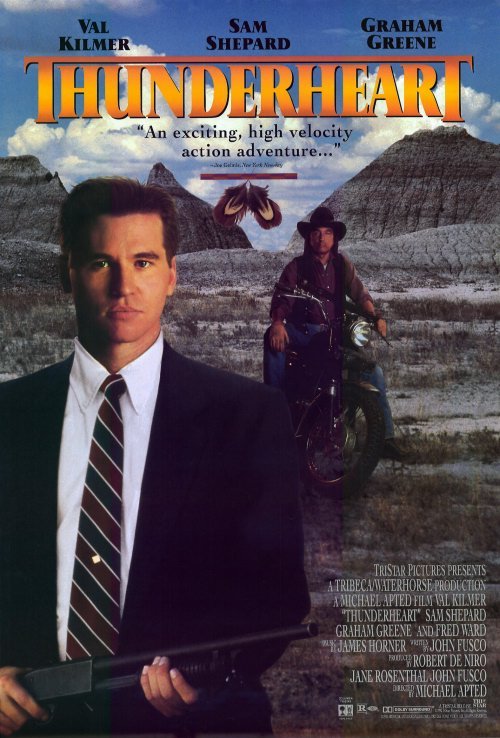
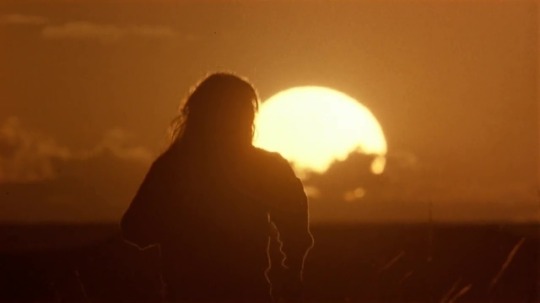
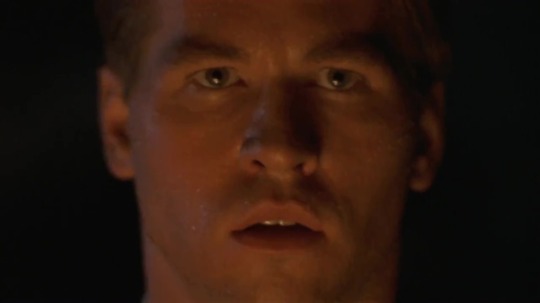
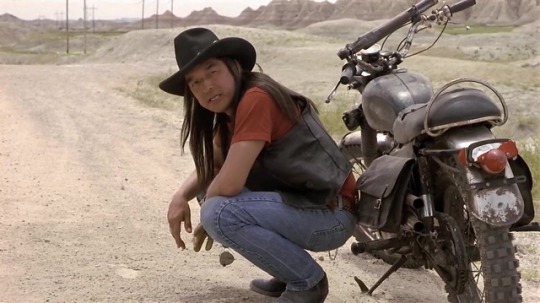
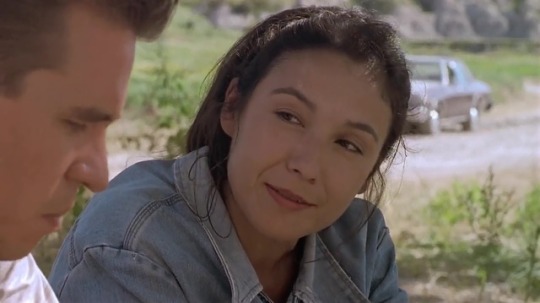
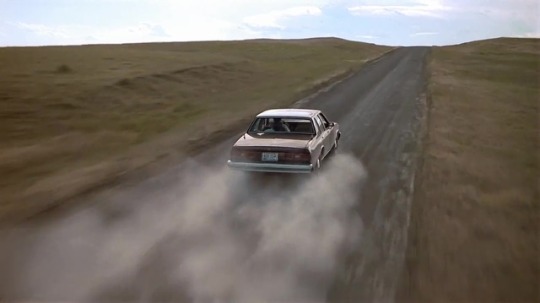
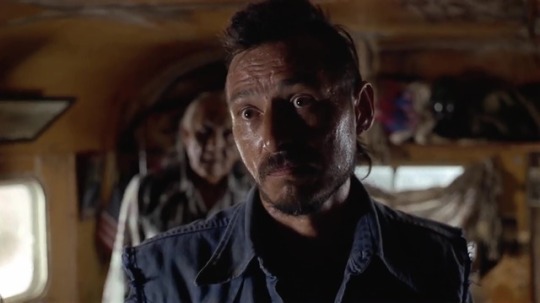
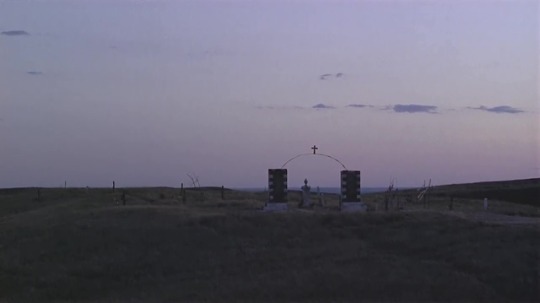
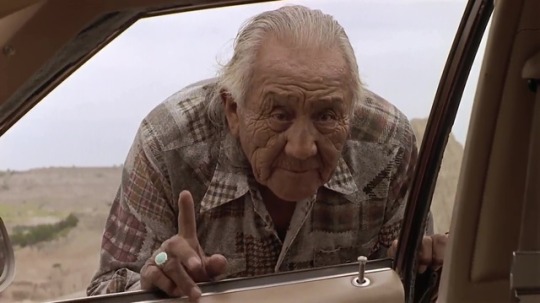
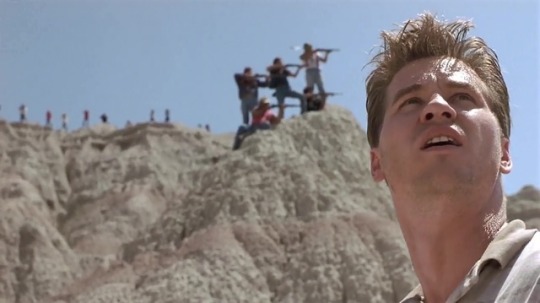
Thunderheart (1992, Michael Apted)
2/3/19
#Thunderheart#Val Kilmer#Sam Shepard#Graham Greene#Fred Ward#Sheila Tousey#Fred Dalton Thompson#John Trudell#crime#thriller#mystery#Native-American#Sioux#South Dakota#Badlands#FBI#murder#poverty#investigation#reservation#visions#shapeshifting#fish out of water#corruption#police brutality#shootout#rebels#chase#activists#Wounded Knee
19 notes
·
View notes
Photo
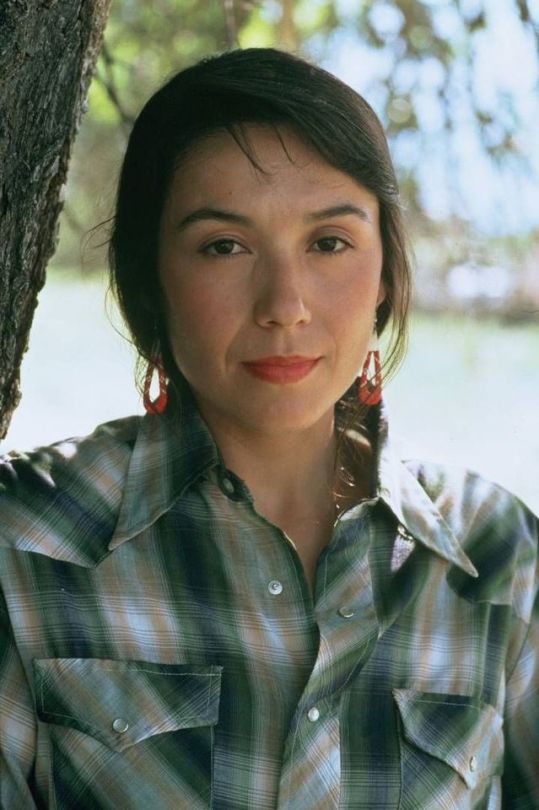
Maggie Eagle Bear (Sheila Tousey) from Thunderheart (1992) (dir. Michael Apted)
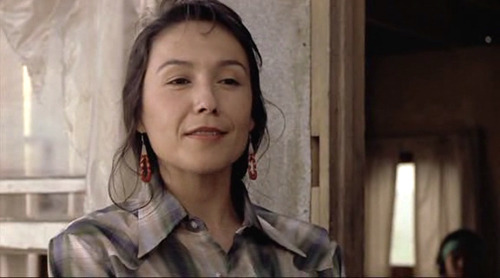
DOES THE NDN LIVE? : NO
---
ADDITIONAL COMMENTS: Thunderheart is heavily inspired by the American Indian Movement and the standoff at Wounded Knee. Maggie Eagle Bear is an activist and a lawyer fighting injustice on and off the reservation. She is murdered off screen and her body is found in the desert towards the end of the film. Despite that, she is the best character in the film and remains a strong, dignified and driven character throughout the narrative.
#does the NDN live#maggie eagle bear#sheila tousey#thunderheart#native american#american indian#ndn#film#dies#indigenous#aboriginal#indigenous women#aboriginal women
65 notes
·
View notes
Link
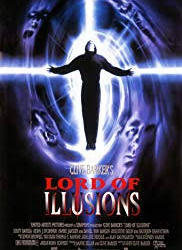
#lord of illusions#clive barker#scott bakula#kevin j. o'connor#j. trevor edmond#based on#short story#mystery#thriller#united states#cult#daniel von bargen#joseph latimore#famke janssen#sheila tousey#susan traylor#ashley tesoro#horror#horror film#horror films#horror movie#horror movies#horror fan#horror fans#horror review#horror reviews#horror reviewer#film review#film reviews#film reviewer
0 notes
Text
I was thinking about Mama Manes and who should play her if she pop ups in the story.
Considering age probably doesn’t matter too much since Trevor is only fifteen years older than Tyler, whose play the youngest of four boys. I mean I know you can join the armed forces young, but I don’t think they were taking them that young.
But I was thinking who could play Mama Manes.
Irene Bedard, Sheila Tousey, Alex Rice, Tonantzin Carmelo, and Brenda Schad were some google picks I came up with.
9 notes
·
View notes
Photo

"We didn’t have enough trailers to give to everyone, so we gave them to the first four above-the-line people. When River started working with Sheila Tousey, he realized that she was in a honey wagon and he was in a trailer, and she not only had long makeup hours, but a lot of preparation doing vocal exercises. So he came to me and said, ‘I’d like to give Sheila my trailer and I’ll go into the honey wagon.’ I’d never had an actor say, ‘May I give up my comfortable space for a smaller one, because one of my fellow performers needs it more than I do?’”
— Carolyn Pfeiffer, Silent Tongue’s producer
136 notes
·
View notes
Text
Lost Classic #4

RAVENOUS
Dir. ANTONIA BIRD; Wri. TED GRIFFIN; Music. MICHAEL NYMAN & DAMON ALBARN; Starring. GUY PEARCE, ROBERT CARLYLE, DAVID ARQUETTE, JEREMY DAVIES, JEFFREY JONES, JOHN SPENCER, STEPHEN SPINELLA, NEAL McDONOUGH, JOSEPH RUNNINGFOX, SHEILA TOUSEY; R.T. 100 mins; 1999, United Kingdom/USA/Czech Republic/Slovakia
WHAT IT’S ABOUT: Captain John Boyd (Pearce), a “hero” of the Mexican-American War, is transferred to the remote military outpost of Fort Spencer, deep in the Sierra Nevada mountains, to cover up his cowardice during a decisive victory. His peaceful isolation is shattered by the arrival of Colqhoun (Carlyle), a half-starved escapee from an ill-fated wagon-train, which prompts the garrison to head out into the frozen wilderness to rescue the remaining survivors. What they find is a nightmare …
WHY IT’S LOST: Ocean’s 11 screenwriter Ted Griffin’s jet black comic horror, inspired by the real life cannibalism of the Donner Party Massacre, had such a troubled production history it’s a miracle it made it to the screen at all – three weeks into the shoot, original director Milcho Manchevski, whose relationship with executives at production company Fox 2000 was already badly strained, was booted from the project; the producers then brought in Raja Gosnell, who was roundly rejected by the cast, leading to his own replacement by Antonia Bird, the recommendation of Robert Carlyle, who’d previously worked with her on British crime thriller Face. The shoot continued to hit speed-bumps with Bird also getting rubbed up the wrong way by the producers, and when the film was finally released it was met with mixed reviews by critics who clearly didn’t know what to make of it, badly underperforming at the box office (ultimately making just two million against a $12 million budget) and vanishing into relative obscurity.
WHY YOU SHOULD DISCOVER IT: Even so, the film has built up a healthy cult following in the years since, and rightly so – this is an absolute gem of the genre, probably my favourite ever “cannibal horror”, and an absolute masterpiece of dark comedy. Despite Bird’s troubled shoot, she shows the same kind of flair for complex character dynamics and oppressive, confrontational atmospherics I enjoyed in Face, ably supported by a comprehensively exceptional cast of truly MAJOR talent. Guy Pearce again proves why he’s one of the most dramatically compelling leading men working in cinema today, investing the potentially loathsome character of Boyd – a self-serving coward who routinely runs away from confrontation – with a wounded dignity and steadfast moral code that wins us over, while Robert Carlyle is a SPECTACULAR villain, seductively charming and gleefully casual about his predatory nature, frequently terrifying but never becoming overblown or hammy; their light-versus-dark dynamic lends the film a robust driving force, but they never eclipse the sterling supporting cast, the likes of Tim Burton regular Jeffrey Jones, Scream star David Arquette, Saving Private Ryan’s Jeremy Davies’ and Hollywood heavyweight John Spencer all making their significant presences felt. This is an endlessly engaging film, the weighty themes of manifest destiny and moral right-and-wrong versus real-life necessity given due contemplation while the well-rounded, endlessly fascinating characters negotiate the meaty, twisted plot, and while the action is suitably intense, dripping in wire-taut atmospheric tension and plentiful literal gore, it still tends to be played for some major belly-laughs and is all the better for it. Add a delightfully odd score from Michael Nyman and Blur’s Damon Albarn to the rich, flavoursome mix and this is a unique, rewarding and deeply satisfying film that deserves some major recognition.
#ravenous movie#guy pearce#robert carlyle#awesome movies#must see movies#quality horror#quality comedy
42 notes
·
View notes